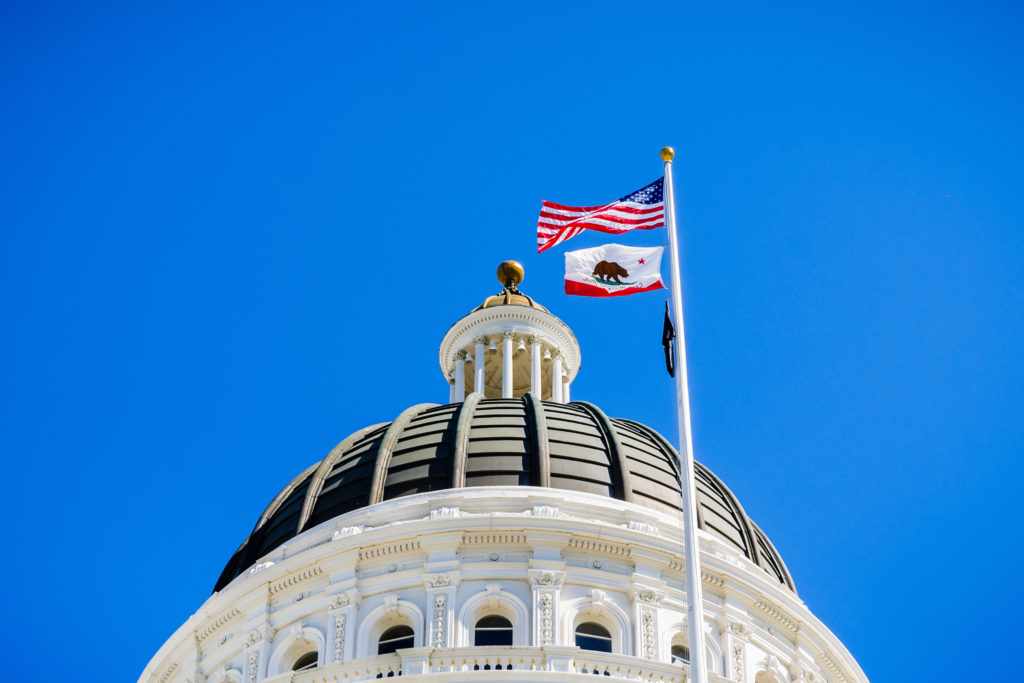

California Climate Disclosure Regulation
RE Tech breaks down who will be impacted by California’s new climate-focused legislation and provides an overview of what is to come once it becomes law. RE Tech breaks down who will be impacted by California’s new climate-focused legislation and provides an overview of what is to come once it becomes law.
EXECUTIVE SUMMARY
On September 12th & 13th, 2023, as part of the Climate Accountability Package, California Senate Bill 253 (SB 253), the Climate Corporate Data Accountability Act, and Senate Bill 261 (SB 261), the Climate-Related Financial Risk Act, made substantial progress in their journey toward becoming law by passing in both the California State Assembly and Senate. While similar to proposed federal regulations put forward by the SEC, the bills reach further on several fronts and apply to both public and private companies that do business in the state and meet certain annual revenue thresholds. Because of California’s outsized influence on the global economy, they promise to shape business practices well beyond the state’s borders.
Under SB 253, companies with annual revenues exceeding $1 billion are now obligated to provide comprehensive disclosure encompassing both direct and indirect emissions. SB 261 introduces climate-related reporting requirements for companies with annual revenues of $500 million or more. Applicable companies are mandated to produce biennial reports specifically detailing climate-related financial risks and the precise measures implemented to mitigate and adapt to such risks.
The Climate Accountability Package will make California the first state in the US to require climate transparency at this level. It seeks to curb greenwashing by providing communities and consumers with access to transparent and accurate data on how much companies are contributing to climate change. California Governor Gavin Newsom has until October 14, 2023 to sign or veto SB 253 and 261 and has indicated he will sign both bills.
REGULATIONS AT A GLANCE
SB 253SB 261ApplicabilityCompanies doing business in CA with >$1 billion revenueCompanies doing business in CA with >$500 million revenueRequired DisclosureScope 1, 2, & 3 emissionsClimate-related financial risks and measures taken to reduce and adapt to the associated risksTiming2026: Report on Scope 1 & 2 emissions based on 2025 data
2027: Report on Scope 1, 2, & 3 emissions based on 2026 dataBeginning January 2026 and continuing biennially
SENATE BILL 253 OVERVIEW
WHO IS IMPACTED?
This bill compels public and private companies doing business in California with annual revenue in excess of $1 billion to disclose their emissions. Over 5,000 companies doing business in California will be required to make disclosures. SB 253 does not define “doing business in California,” But it is anticipated that California will take a broad view of the phrase based on other state regulations. The California Franchise Tax Board’s definition for “doing business” in the state includes any entity that “engages in any transaction for the purpose of financial gain within California.”
WHAT IS REQUIRED?
Companies must report their direct, indirect, and supply chain related greenhouse gas emissions. Reporting begins in 2026, including data from 2025, for direct and indirect emissions (Scope 1 and Scope 2) and extends to include supply chain emissions (Scope 3) in 2027, reporting on 2026 data. Reports must adhere to Greenhouse Gas (GHG) Protocol standards and be verified by third-party providers.
Assurance requirements on emissions will be effective in the first year of disclosure. Specifically, Scope 1 and 2 emissions disclosures will require limited assurance, beginning in 2026, then moving to a reasonable level of assurance in 2030. For Scope 3 disclosures, limited assurance will begin in 2030 subject to a review by the California Air Resources Board (CARB) in 2027.
SB 253 differs from the proposed SEC regulations in that it mandates the disclosure of all Scope 3 emissions. In contrast, the SEC’s requirement pertains to Scope 3 emissions only when they are considered material or when the registrant has established specific targets or goals encompassing Scope 3 emissions.
REPORTING PROCESSES AND PENALTIES
CARB will establish a digital platform for public access to disclosures, with reporting entities paying a fee for reporting to cover costs. This registry would enable users to review individual reporting entity disclosures and analyze underlying data elements in a variety of ways.
The bill authorizes the State Board to bring civil actions against subject companies and seek civil penalties for violations of the act, with a maximum fine of $500,000. Amendments in the Assembly have scaled back the liability for Scope 3 emissions via the introduction of a safe harbor. Under the amended bill, businesses would not be subject to administrative penalty for misstatements about Scope 3 emissions made with reasonable basis and only subject to penalties if there is no disclosure made at all.
SENATE BILL 261 OVERVIEW
WHO IS IMPACTED?
SB 261 requires US entities that do business in California with total annual revenue of at least $500M to prepare and submit climate-related financial reports.
WHAT IS REQUIRED?
The Climate-Related Financial Risk Act, or SB 261, requires certain entities doing business in California to prepare and submit reports that cover their climate-related financial risk in accordance with the recommended framework of the Task Force on Climate-Related Financial Disclosures (TFCD) and measures they have taken to reduce and adapt to the climate-related financial risk. Reports mentioning GHG emissions or mitigation efforts must be independently verified. Covered entities must make their biennial reports publicly available on their websites. This process will start January of 2026, reporting on 2025 data, and continue biennially thereafter.
The bill defines climate-related financial risk as “material risk of harm to immediate and long-term financial outcomes due to physical and transition risks.” Such risks include, but are not limited to, risks to corporate operations, provision of goods and services, supply chains, employee health and safety, capital and financial investments, institutional investments, financial standing of loan recipients and borrowers, shareholder value, consumer demand, and financial markets and economic health. This definition is similar, but not identical, to the definition of “climate-related risk” in the SEC’s March 2022 proposed rule.
REPORTING PROCESSES AND PENALTIES
CARB will contract with a non-profit climate reporting organization to prepare a biennial public report on the climate-related financial risk disclosures made during that period and identify any inadequate or insufficient reports. Covered entities that the state board finds to be in violation of SB 261 will be subject to administrative penalties of up to $50,000 per reporting year.
We are hiring!
We are looking for creative and energetic professionals that are passionate about sustainability, real estate, using data and analytics to drive results, and making a difference. Come join our team.




